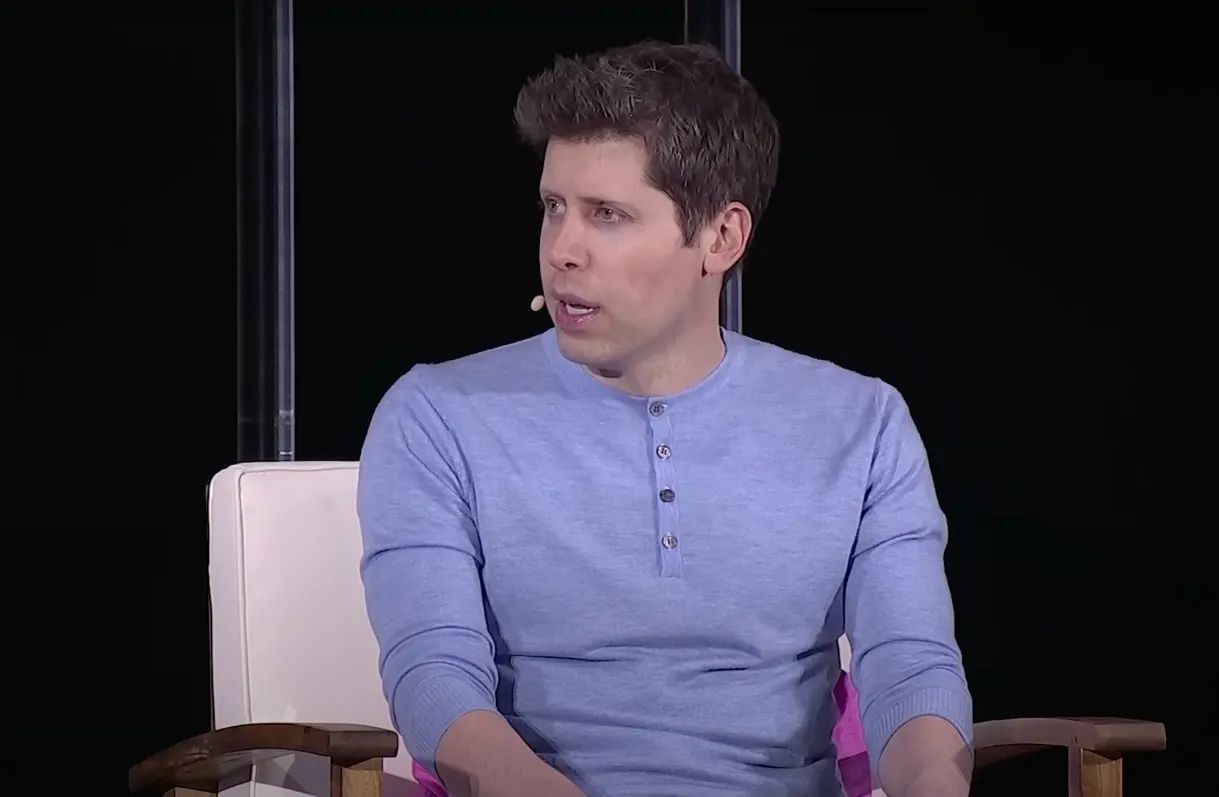Can machines really achieve the multifaceted intelligence that defines the human intellect? With GPT-3, its powerful new language model, OpenAI says it is closer than ever before.
Sam Altman, the visionary CEO of OpenAI, shared his take on the trajectory of artificial intelligence, in an interview with The Wall Street Journal.
"The future might see AI models requiring less training data, focusing more on their reasoning capabilities," Altman said. This statement doesn't just suggest a technical shift, but presages a new era where AI's thought processes could mirror human logic and intuition.
An AI able to reach such capabilities—the adaptability and common sense of a person—is broadly known as Artificial General Intelligence. Sam Altman defines it as “a system that can generalize across many domains that would be equivalent to human work.”
Achieving this state has become OpenAI’s priority to the point that it even changed its vision and ethical principles to fit this new endeavor.
The release of ChatGPT marked a revolution in the industry. GPT-4—and GPT-4V—added even more fuel to the fire. From human-chatbot relationships to CEOs firing entire teams because AI chatbots do the same work for less money, the gap between what a human can do and what ChatGPT is capable of is narrowing.
We had to layoff 90% of our support team because of this AI chatbot.
Tough? Yes. Necessary? Absolutely.
The results?
Time to first response went from 1m 44s to INSTANT!
Resolution time went from 2h 13m to 3m 12s
Customer support costs reduced by ~85%Here's how's we did it 🧵
— Suumit Shah (@suumitshah) July 10, 2023
This human-likeness is no accident. Since 2018, OpenAI has singularly focused on developing AGI instead of just AI, and its Large Language Models are just the beginning of this path. A huge dataset and deep learning from human language endow ChatGPT with intuitive understanding, abstraction and opinion-forming once thought impossible in AI.
Some believe systems like ChatGPT raise profound philosophical questions. Can intelligence exist without consciousness? Is there a "soul" behind the machine? Those questions are being debated more and more everyday, to the point that some scientists have even reported sparks of intelligence (human intelligence) in modern AI chatbots.
Another controversial topic explored in the interview was the data used to train AI models. In an era where data privacy is a significant concern, OpenAI's approach to data will be under scrutiny.
"We obviously only want to use data that people are excited about us using—we want the model of this new world to work for everyone,” Altman said. "It may be a new way that we think about some of these issues around data ownership and how economic flows work."
Looking to the future, Altman is bullish on the potential of AI. For OpenAI, the post-AGI world is one with a symbiotic relationship between humans and AI, where both entities benefit from each other's strengths.
"I think AGI will be the best tool humanity has yet created. With it, we will be able to solve all sorts of problems. We'll be able to express ourselves in new creative ways,” he said.
This view of the future has a divided part of the most notable minds in the AI field. Altman is definitely AI-optimistic, a vision shared by Meta’s Chief AI scientist, Yan LeCun. But others are more cautious and have warned about the risks of AGI and even relying too much on AI at all. From ex-OpenAI Paul Christiano to ex-Google Geoffrey Hinton, the Godfather of AI himself, many leaders and notable figures have shown that this is a sensitive topic with a lot of nuances that are either overhyped or ignored depending on the person
Yet, as AI continues its march towards mimicking human reasoning, ethical and philosophical debates arise. Altman emphasized OpenAI's commitment to ensuring that AI's development remains a collective endeavor, involving various stakeholders "We are willing to sort of follow the collective wishes of society on this point," he assured.
The philosophical stakes only grow as ChatGPT and the whole AI ecosystem evolves. Soon these "thinking machines'' may surpass biological intelligence, rendering human minds obsolete.
So while GPT-4 amazes with its human-esque cognition today, greater questions loom about the ghost in the machine—and who exactly is shaping the soul of OpenAI's creation.
Edited by Ryan Ozawa.

